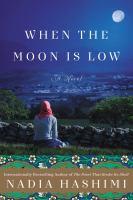
Imagine that food is scarce, money is even scarcer, education is not an option for women and freedom of anything - speech, religion, choice - no longer exists. This is Afghanistan in the 1990s, the world in which Fereiba now lives and she is desperately seeking a way out. She grew up in a better time where she was able to go to school, teach and live a respectable but free life. She recounts her childhood and growing up in a middle-class family while remembering her first love and how heartbroken she was when he married her sister. But now she is married herself to a wonderful man who supports her and their children. They turn their heads when others flee the country and tell themselves that everything will be ok if they continue on as they have been. And then one day, when the money has almost run out and their fear of survival has gotten the best of them, they decide that now is the time to leave and move to England to be with Fereiba's sister. However, the journey is difficult and things do not go as planned and Fereiba is forced to make difficult decisions about her family's future. Her story is interwoven with the story of her son, Saleem, becoming a man much too soon and his quest to help provide for them even when there is nothing to give. Through their words readers are given a glance into what life is like for refugees as they run from devastating situations and seek asylum in more humane countries.
I found When the Moon is Low to be beautifully written but lacking in content at the same time. Nadia Hashimi's writing style is much like being read a fantastical story but her characters are hard to connect with and readers may be left wanting to know more about their thoughts and feelings as they seemed more reserved and naive than I would have expected. Saleem's story was the crutch that moved the book along and yet I thought that by the end she was running out of things to write about and then leaves the reader hanging which was not enjoyable. Hashimi acknowledges that there are numerous real-life stories about refugees already published and I would recommend reading one of those in tandem with this novel.
